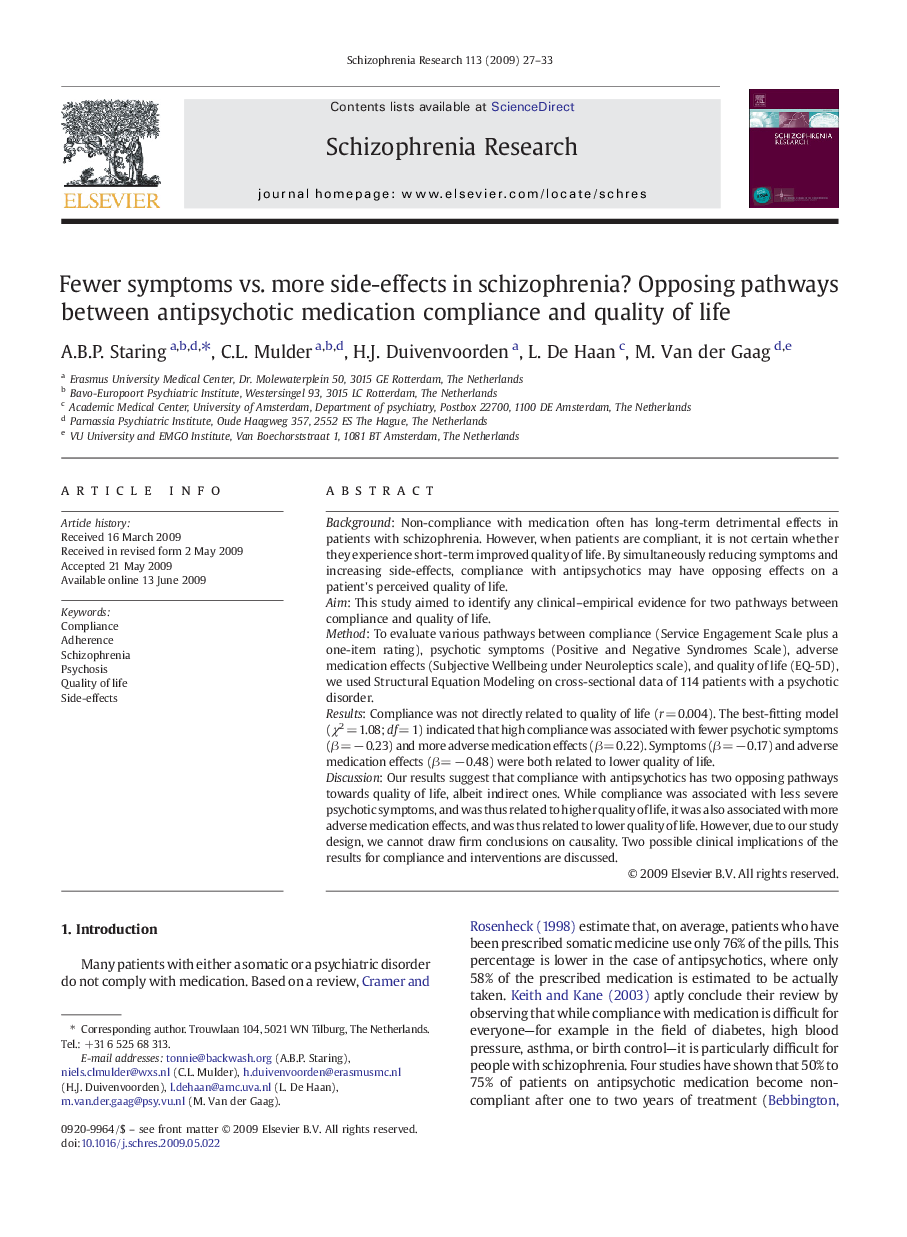| Article ID | Journal | Published Year | Pages | File Type |
|---|---|---|---|---|
| 341433 | Schizophrenia Research | 2009 | 7 Pages |
BackgroundNon-compliance with medication often has long-term detrimental effects in patients with schizophrenia. However, when patients are compliant, it is not certain whether they experience short-term improved quality of life. By simultaneously reducing symptoms and increasing side-effects, compliance with antipsychotics may have opposing effects on a patient's perceived quality of life.AimThis study aimed to identify any clinical–empirical evidence for two pathways between compliance and quality of life.MethodTo evaluate various pathways between compliance (Service Engagement Scale plus a one-item rating), psychotic symptoms (Positive and Negative Syndromes Scale), adverse medication effects (Subjective Wellbeing under Neuroleptics scale), and quality of life (EQ-5D), we used Structural Equation Modeling on cross-sectional data of 114 patients with a psychotic disorder.ResultsCompliance was not directly related to quality of life (r = 0.004). The best-fitting model (χ2 = 1.08; df = 1) indicated that high compliance was associated with fewer psychotic symptoms (β = − 0.23) and more adverse medication effects (β = 0.22). Symptoms (β = − 0.17) and adverse medication effects (β = − 0.48) were both related to lower quality of life.DiscussionOur results suggest that compliance with antipsychotics has two opposing pathways towards quality of life, albeit indirect ones. While compliance was associated with less severe psychotic symptoms, and was thus related to higher quality of life, it was also associated with more adverse medication effects, and was thus related to lower quality of life. However, due to our study design, we cannot draw firm conclusions on causality. Two possible clinical implications of the results for compliance and interventions are discussed.
